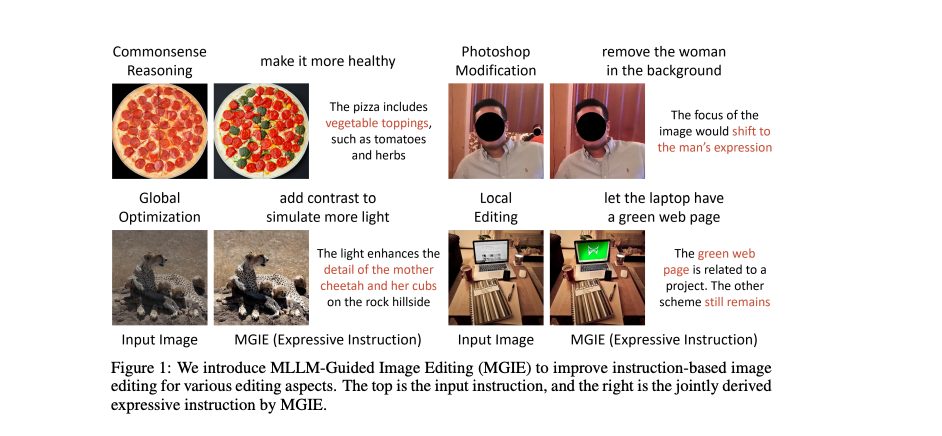
Apple Unveils Game-Changing AI Model ‘MGIE’ for Image Editing
Apple has just introduced ‘MGIE,’ an open-source AI model based on multimodal large language models (MLLMs), designed to revolutionize image editing (via VentureBeat).

The acronym stands for MLLM-Guided Image Editing, reflecting its reliance on MLLMs to comprehend and execute editing commands expressed in natural language.
Developed in collaboration with researchers from the University of California, Santa Barbara, MGIE represents a significant leap forward in the field of instruction-based image manipulation.
This innovative model was recently presented at the esteemed International Conference on Learning Representations (ICLR) 2024, reaffirming its prominence in cutting-edge AI research.
What sets MGIE apart is its ability to interpret user instructions with remarkable precision, facilitating pixel-level adjustments that cater to a wide range of editing requirements. From basic Photoshop-style modifications to advanced global optimizations and intricate local edits, MGIE promises versatility and efficiency in equal measure.
One of MGIE’s key strengths lies in its utilization of MLLMs to generate clear and concise editing instructions, ensuring seamless communication between users and the AI system.
Whether it’s enhancing color saturation, refining image composition, or applying artistic effects, MGIE’s intuitive interface streamlines the editing process for both novices and seasoned professionals.

Moreover, MGIE’s advanced capabilities extend beyond traditional image editing tasks, encompassing complex manipulations such as object removal, background replacement, and image blending.
Its robust framework, underpinned by state-of-the-art machine learning techniques, empowers users to unleash their creativity without constraints.
For those eager to explore the potential of MGIE, Apple has made the model accessible as an open-source project on GitHub.
Furthermore, Apple has provided a demo notebook showcasing MGIE’s capabilities, along with an online web demo hosted on Hugging Face Spaces, a platform for sharing and collaborating on machine learning (ML) projects.

